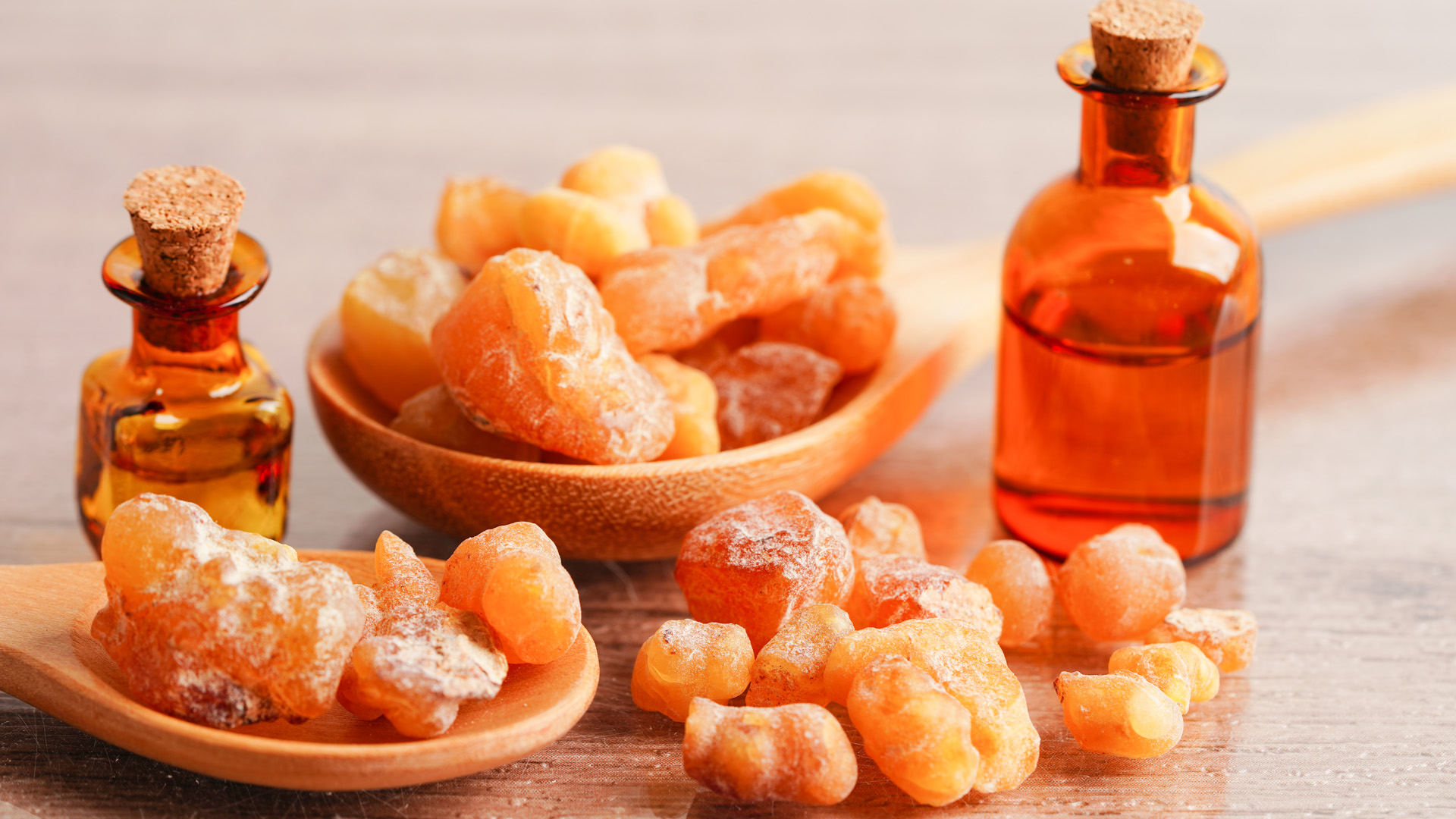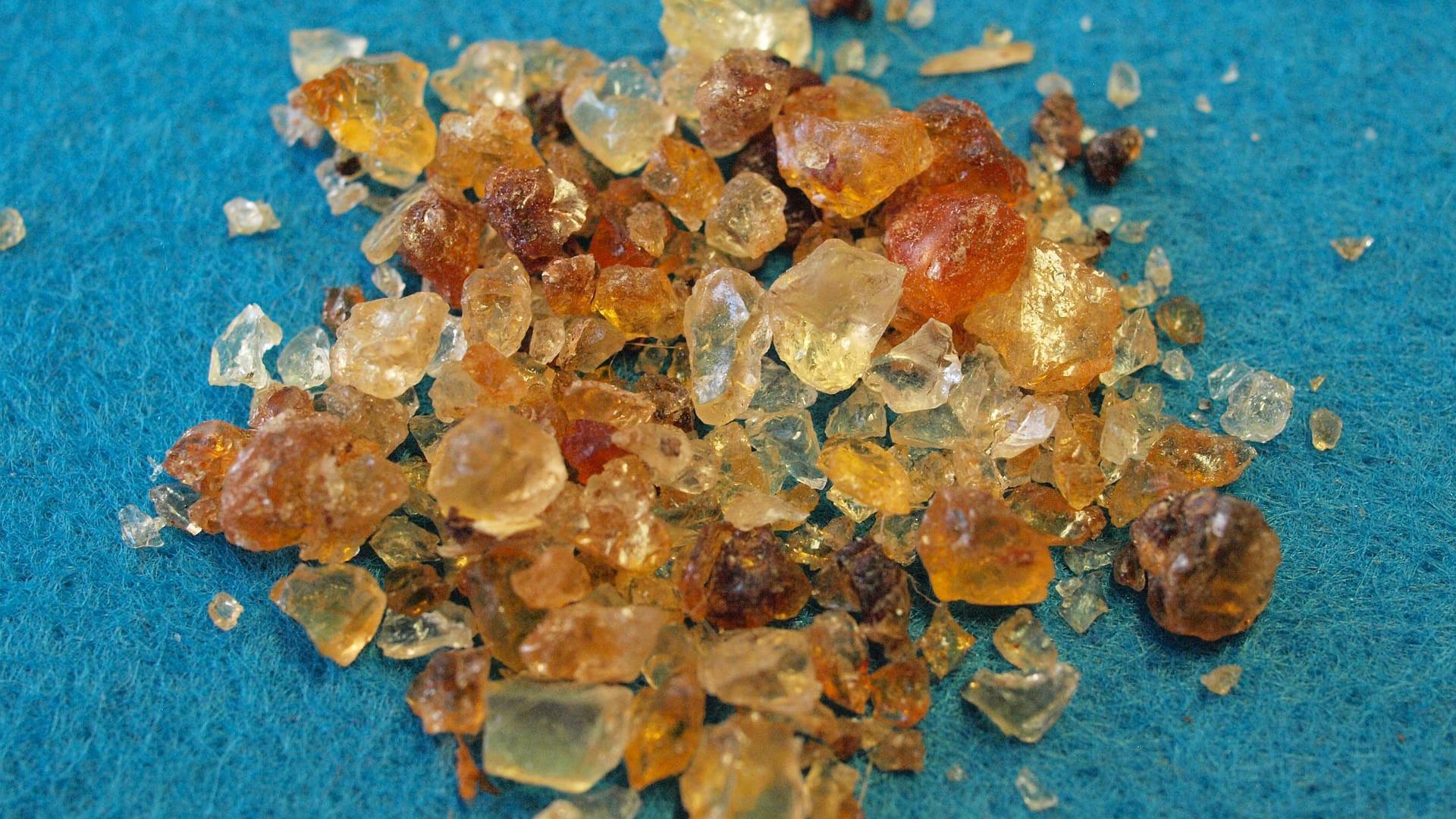Since ancient times, Gum Acacia, also known as Gum Arabic, has been an important commercial ingredient. For example, it was used by the Egyptians to embalm mummies and make paints for hieroglyphic inscriptions. However, in recent years, more articles have been published discussing gum Arabic benefits, structure, properties, and applications in food and pharmaceuticals, and a renewed interest in Gum Arabic has taken place.
Gum Arabic is a tree exudate that is mainly collected from the Acacia Senegal or Acacia Seyal. The Sahelian arc of Africa, a region of Africa immediately south of the Sahara Desert that extends from Senegal to Somalia in the east, is home to a wide variety of Acacia Senegal or Acacia Seyal trees.
Gum Arabic is produced by the resin seeping from the branches and trunks of gum trees. `Tapping’ is the process of removing sections of the bark, avoiding injury to the tree, in order to stimulate Gum Arabic manufacturing or Gum Acacia production. The sticky, tacky substance accumulates on the branches in nodules of various colours and sizes, which are manually collected and sorted.
Other names of gum arabic: are Gum arabic (Acacia Senegal), hashab, Kordofan gum, gum arabic (Acacia seyal), gum talha, Acacia gum, and Arabic Gum.
Gum Arabic Health Benefits
Gum Arabic has many benefits. According to research, acacia fibre may protect against diabetes and heart disease, as well as ease Irritable Bowel Syndrome (IBS) symptoms. It might also assist with weight reduction and gut health.
Confectionary Applications: The primary use of gum arabic is in the confectionery industry, used in various products, including chewing gum, pastilles, marshmallows, and toffees.
Beverages: Gum arabic can be utilised as an emulsifier in the manufacturing of concentrated flavour oils, such as those found in soft drinks, because it is stable in acid conditions. In addition, gum arabic prevents oil droplets from coalescing. In addition, gum arabic prevents oil droplets from coalescing, stabilising the emulsion for up to a year.
Dietary Fiber Fortification: In regulatory terms, dietary fibre refers to carbohydrate polymers which can’t be digested nor absorbed in the small intestine, with polymerisation of the above three. In other words, monosaccharides and disaccharides are inherently excluded from meeting the requirements of the definition. On the other hand, gum arabic meets the requirements from a scientific point of view and has shown beneficial physiological effects. Therefore, utilising gum arabic instead of other ingredients in commercial recipes can help decrease net carbs in products and improve nutritional value.
Gum arabic, a derivative of plant exudates, is the most commercially significant of all exudate gums. In addition, its safety and natural origin make it a wise choice for industrial applications.
It is utilised as a stabiliser, binding agent, emulsifying agent, or viscosity-increasing agent in a variety of food and non-food products, including soft drinks, liquor, confectionery, and dietary fibre, but also as pharmaceutical, cosmetic, printing, ceramic, photographic, textiles, paper, ink, paint, and adhesive.
Gum arabic, which is still unprocessed or semi-processed, has seen exports rise by almost three times in the last 25 years, from an average of 35,000 tonnes in 1992–1994 to an average of 102,000 tonnes in 2014–2016.
Additionally, processed gum arabic exports tripled from 17,000 tonnes to 53,000 tonnes during the same period. The largest three exporters of crude gum arabic are Sudan, which exports up to 66% of the total; Chad, with 13%; and Nigeria, with 8.5% in 2014–2016.
Gum Arabic in Sudan
Sudan is the largest export of Arabic gum, with 66% of the world’s total export. The Sudanese gum arabic belt extends into 12 states on the country’s borders with Ethiopia and Eritrea in the east and with Chad and Central Africa in the west. The area of gum arabic is 500 thousand square kilometres, which is approximately one-third of the area of Sudan.
Gum arabic has become a thriving business thanks to its many advantages, including its health and economic value. Companies began working on exporting it abroad to help raise the country’s economy as a result. One of the leading gum arabic suppliers in Sudan is Gezira Hila Impex Co. Ltd., one of Gezira Group’s subsidiaries. Gum arabic, as well as sesame seeds, hibiscus flowers, ground nuts, peanut oil, melon seeds, and sena pods, are just a few of the commodities Gezira Hila Impex deals with. It was established in 1998 and operated in gum arabic in addition to other products. The firm began to expand and spread throughout Sudan and the world through Dubai offices and agents in various parts of the country and built a good reputation and potion by entering the global markets, especially in Gum Arabic.



